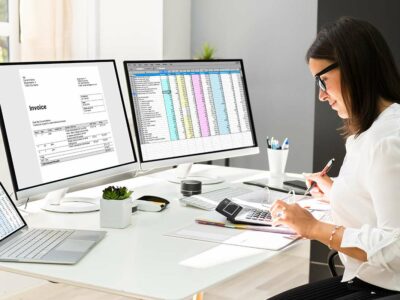
Transactions will be recorded immediately, allowing you to export them into the appropriate tax return templates and send them digitally as needed. But better yet, with real time information, your accountant can review your taxes during the year and identify savings and opportunities https://www.bookstime.com/ before the tax year ends. With cloud accounting, businesses can access their financial data and records from anywhere, at any time. This is a huge benefit for businesses that don’t have the resources to invest in expensive on-premise accounting software and hardware.

Besides invoices, you can create sales orders, quotes, proposals, statements, returns, and credits. The software also lets you create and track jobs and treat them as projects, though FreshBooks and QuickBooks Online do a much better job of providing a separate set of tools for projects. Cloud computing, on the other hand, provides a software function without large upfront costs or licensing fees.
How does cloud accounting enhance your financial visibility?
Lagging indicators and manual software also fail to provide insights into moment-to-moment customer behavior and emerging trends. That’s a serious setback when it comes to crafting winning strategies in a dynamic market. As a finance leader, you want to give yourself every conceivable advantage where cloud accounting cash flow visibility is concerned. Real-time data is also crucial for making quick course corrections and adjustments to your strategies and financial operations. This newfound flexibility allows businesses to respond swiftly to changing market conditions, seizing opportunities as they arise.
- Instead of manually uploading an Excel file or typing in each line of your bank statement, a live feed connects your banking data directly to your accounts.
- Thus, in a cloud accounting software, the accounting data is sent on the cloud, processed on a remote server, and then returned back to you as a user.
- Cloud accounting gives SaaS CFOs access to automated forecasts, offering real-time cash flow projections and accurate financial planning.
- The software also lets you create and track jobs and treat them as projects, though FreshBooks and QuickBooks Online do a much better job of providing a separate set of tools for projects.
- Plus, you don’t have to be responsible for applying security fixes – your software provider will handle that for you automatically.
In contrast to manual forecasting, forecasts created with cloud accounting software utilize machine learning algorithms. Role-based dashboards in cloud accounting software provide real-time visibility into your key business metrics, empowering your team to track business performance much more effectively. The cost of cloud accounting is primarily influenced by the selected features and the number of users. This allows you as a user to restore the previous versions of your accounting reports or anything that you do from a particular point in time.
How Cloud Accounting Works
By prioritizing clarity around your finances and business processes–and with a little help from AI–you can win your market and create sustainable subscription cash flow. The cloud packs a serious punch in terms of its impact on financial visibility. But to help you get the full story, let’s examine the risks of using legacy accounting software instead of a cloud platform.

